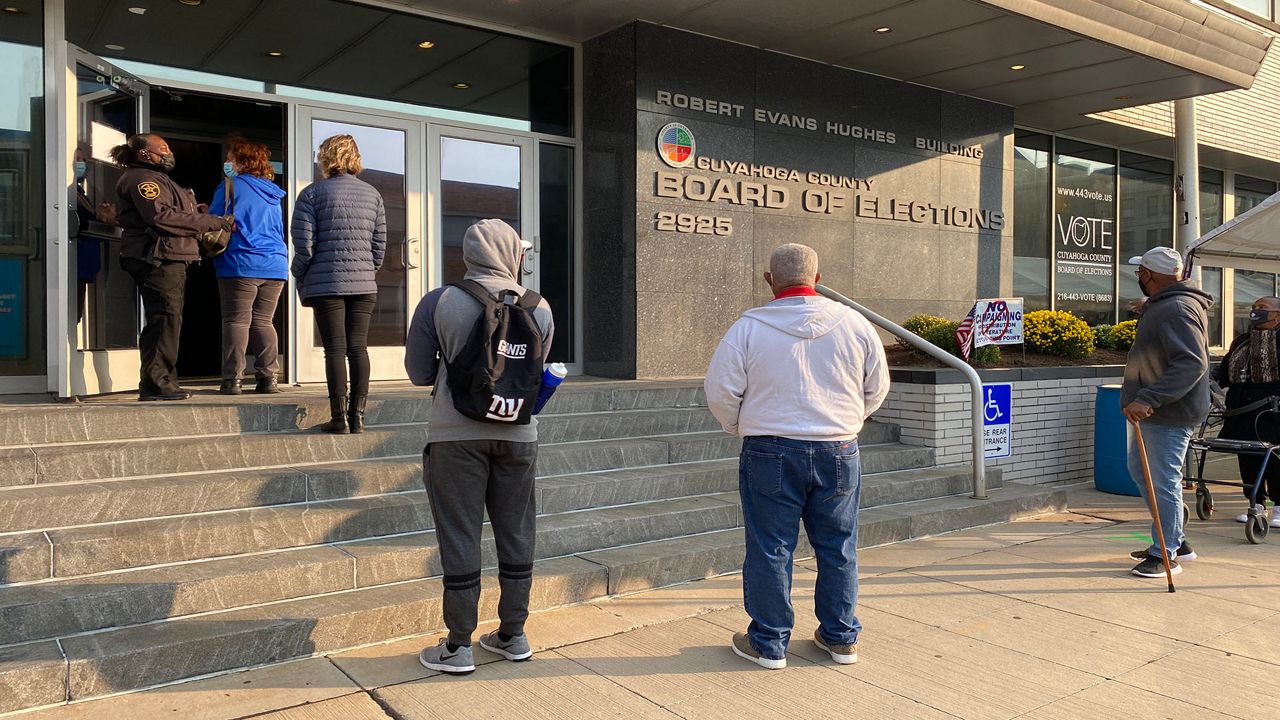CINCINNATI — Violent crime is on the rise across all of Ohio’s major cities.
In Cincinnati, police said 2020 homicides and shootings are nearing record numbers. Often, the city’s poorest neighborhoods are left to cope with the aftermath.
Seven Hills Neighborhood Houses is one of several nonprofits formed to help. The organization provides wraparound services in Cincinnati’s West End neighborhood, addressing food access, services for crime victims, job training, and most recently, trauma.
The effort started in 2016. Then-Attorney General Mike Dewine awarded $2.6 million in grants to create five recovery centers across the state, bent on providing crisis intervention for trauma victims. Four of those grants went to Ohio hospitals. Seven Hills got the fifth.
Sheila Nared has run the center ever since.
“This is just a safe haven — a comfort zone for individuals in need,” she said.
The social worker grew up in Cincinnati and interned with Seven Hills, working with crime victims for years. There, Nared learned while there’s no one answer to how and why crime impacts victims, trauma is at the heart of the cause and effect.
“Trauma is real and your body tells you when you’ve been traumatized,” she said. “It speaks to you, and what they don’t know is there’s ways to speak back to that thing.”
Nared defines trauma as anything you feel and experience that sticks with you, preventing you from living your life as you once did.
Nared said the trauma center provides counseling, both in response to violence and pain, and to prevent it. She’s worked with people whose trauma comes from seeing their friends or neighbors die, having their windows shot out, or simply growing up without reliable access to food.
For the past four years, Nared and her fellow trauma counselors have worked out of the first floor of the Seven Hills Neighborhood House. She said the service is popular and demanding, often keeping her team busy from open until close. Once her clients leave though, Nared worries some could return to an environment that causes further trauma.
“When you go through a traumatic experience, and it may have happened in your home, if your home got shot up, of course you don’t want to stay there that night,” she said.
That’s why Nared is hoping to open a shelter in the coming years. The goal is to make a temporary spot for anyone who needs a safe place to stay, whether it’s a crime witness or someone returning from the hospital with nowhere to go.
“They’ll be safe and secure up here,” Nared said.
Seven Hills already has the building, just blocks away from their main office on Findlay St., though it could use hundreds of thousands of dollars worth of work.
The four-story building has been boarded up for at least five years. It needs new flooring, structural repairs, and more than a few paint jobs.
Nared pitched the project to Cincinnati City Council last year, earning a $100,000 grant that she said will take care of the office space and counseling rooms on the first floor. She said the project will need at least double that to make the housing portions of the shelter a reality.
“We’re gonna do this,” she said. “The team’s gonna do this.”
In the meantime, she said Cincinnati’s violent year is another reminder of why the need for a shelter like this is so urgent.




